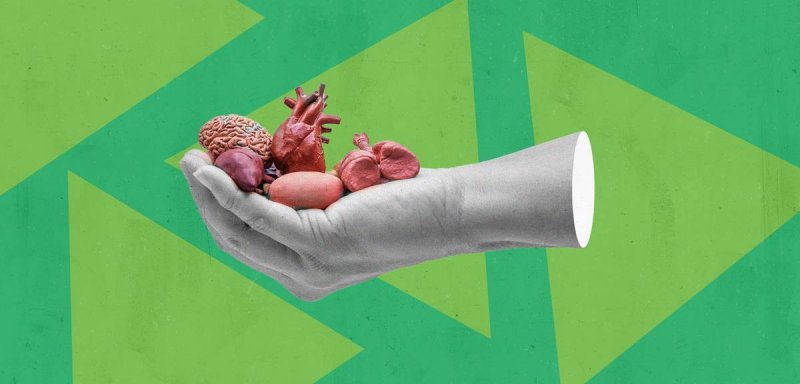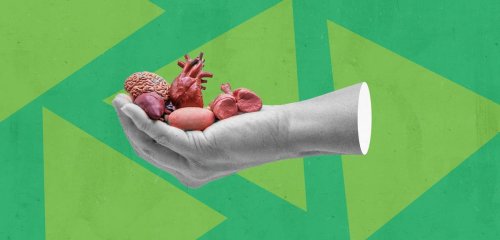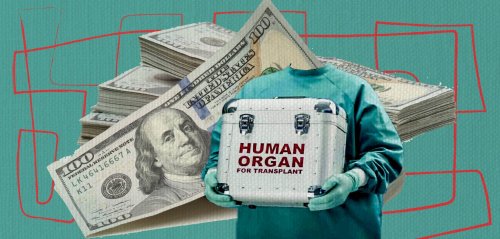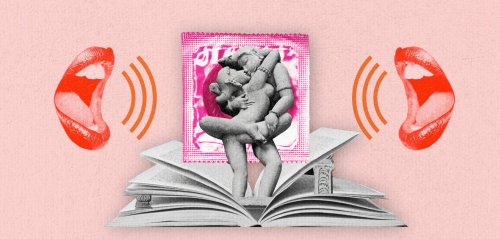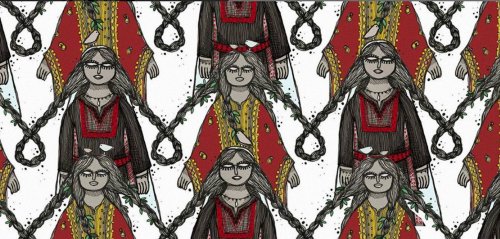The idea of donating organs after death is one that still teeters between encouragement and rejection in the Arab world at large, and specifically, within Islamic contexts. This divergence in stance is a result of differing opinions among religious scholars regarding the sanctity or ethical permissibility of transferring organs from the dead to the living. However, there has been a shifting landscape of religious interpretations and fatwas in several nations, leading to the endorsement of this humane initiative aimed at saving lives. Consequently, over the past three years, multiple Gulf nations have shown progress in fostering a culture of organ donation, despite the relatively limited pool of donors. This progress, though gradual, is noteworthy.
In recent years, both the United Arab Emirates and Kuwait, alongside Saudi Arabia, have taken active steps to elevate awareness about the importance of posthumous organ donation. The intention behind these efforts is to combat organ trafficking while simultaneously reducing the count of patients registered on waiting lists for organ transplants.
Saudi Arabia has emerged as a pioneer in this arena, legalizing organ donation through a governmental decree issued in April 2021. The decision was disseminated via the official Ministry of Health website, and individuals were given the opportunity to register as donors through the "Tawakkalna" app, provided they were residents or citizens above the age of 18. In response, the Ministry of Health has reported significant engagement in the registration process.
In January 2023, as a mark of recognition and encouragement for donors, King Salman bin Abdulaziz of Saudi Arabia bestowed the "King Abdulaziz Medal" of the third degree upon 100 organ donors, whether the organ was donated from a living or brain-dead individual. This ongoing initiative has recognized hundreds of donors over the past years.
However, opposing voices have arisen in Saudi Arabia, particularly from religious circles, expressing reservations about these practices. An instance that garnered attention was when a Saudi citizen (as reported on the ministry's Twitter account) revealed that he had donated the organs of his clinically deceased 16-year-old son, benefiting six individuals afflicted with end-stage organ failure.
On the other hand, a significant portion of Saudis have embraced this initiative wholeheartedly. They have commended the father's courageous decision and expressed their willingness to contribute to this cause as well.
Rising numbers
According to Dr. Talal Al-Goufi, the Director General of the Saudi Center for Organ Transplantation (SCOT), in a conversation with Raseef22, as the year 2022 came to a close and the year 2023 began, approximately 520,000 individuals registered to donate their organs, encompassing both citizens and residents. This is a substantial figure, especially when considering that only a year and a half has passed since the legalization of these procedures. Since the start of this year, the number of donors has reached around 300,000 people, comprising both males and females of various faiths and nationalities. These numbers are impressive achievements accomplished within a relatively short time frame.
Al-Goufi further elaborates, "Regarding the official statistics from the previous year that we have at our disposal, organ donation procedures have saved the lives of 15,130 patients, with 9,268 successful surgeries carried out. Additionally, there are currently 20,971 patients eagerly waiting for organ donations."
"When my son fell ill, I gained a profound understanding of the emotions parents experience as they strive to do everything in their power to save their loved ones. When Abdullah required a liver, I did not hesitate to give him a part of mine to save him"
Khalid Al-Ahmadi, a 49-year-old high school teacher, decided to donate all of his organs after his passing to those in need of transplantation. The reason behind this decision was his son Abdullah, 19 years old, who suffered from a serious liver condition that required a transplant. Khalid didn't hesitate to donate a part of his liver to save him in his final moments, as he shared with Raseef22.
He shares his story with Raseef22, "When my son fell ill, I gained a profound understanding of the emotions parents experience as they strive to do everything in their power to save their loved ones. When my son Abdullah required a liver transplant due to a severe liver condition at the age of 19, I did not hesitate to give him a part of my liver to save him. I made a solemn vow to God that if my son emerged safely from the operation, I would selflessly donate medically suitable organs to those who await a glimmer of hope to revive their own lives or the lives of their offspring."
Al-Ahmadi also points out, "There was confusion among some religious scholars and interpreters who previously prohibited organ donation due to the phenomenon of organ trafficking for financial gain. However, there is a clear distinction between voluntary, altruistic organ donation and the exploitative practice of organ trafficking. Islamic teachings promote acts of benevolence and sacrifice, and what greater act of benevolence can there be than this?"
Foreigners engage
The UAE emerged as the second Gulf nation to throw its weight behind these campaigns. In 2022, the Emirati government officially embraced the World Organ Donation Day, which falls on the 13th of August.
By November 2022, the UAE revived the "Hayat" campaign, aimed at fostering organ and tissue donation. Originally launched in 2016, the campaign initially struggled to gain traction due to its novel concept within society.
The Ministry of Health and Community Protection then embarked on an intensified campaign in May 2023, utilizing ministry-affiliated communication platforms. These efforts extended to schools, universities, and even religious centers.
"There is a huge difference between altruistic organ donation and the exploitative practice of organ trafficking. Islamic teachings promote acts of benevolence and sacrifice, and what greater act of benevolence can there be than this?" – Khalid, an organ donor
"Every individual, irrespective of their religion, ethnicity, nationality, or gender, who is over the age of 21 and resides within the UAE, is entitled to donate their organs. They can register their details on the ministry's website under the organ donation section or utilize the ministry's application with a quick response code, specifically within the 'Hayat' program. The individual is advised to share this code with their family. In the event of their passing, one of the family members will be contacted to obtain final approval for organ transfer before burial," explains Dr. Ali Al-Obaidli, the head of the Organ Donation Committee at the Ministry, speaking to Raseef22.
He points out that "the participation rate in the 'Hayat' program experienced a remarkable increase of 41% in 2022 compared to the previous year when the campaign's promotion commenced. In 2023, this rate has surged beyond 55%, a promising indicator of heightened public awareness, whether among resident foreigners, Arabs, or even citizens. Thus far, participants from 54 different nationalities have engaged in organ donation in the UAE, benefiting individuals of diverse nationalities, including Emirati citizens."
The number of individuals requiring organ transplants across the seven Emirates exceeds the current number of donors. Often, organs from donors outside the country are utilized to meet these needs. Nonetheless, Al-Obaidli projects that "in the near future, the culture of donation, particularly among citizens, will increase. We will be in a position where we can meet all needs across all hospitals."
In his assessment, "Citizens' reluctance to donate can be attributed to psychological apprehensions, religious beliefs, and a lack of awareness on this matter. This is where the media plays a pivotal role. It serves as a fundamental cornerstone for understanding the true meaning and impact of organ donation, motivating individuals through programs, dialogues, and engaging individuals with firsthand experiences in donation and transplantation."
Al-Obaidli underscores a crucial approach adopted by the Ministry of Health, explaining, "Thanks to medical progress, individuals grappling with chronic ailments, cancer, HIV, hepatitis, and other conditions can now donate. It's worth noting that registering in HAYAT doesn't automatically qualify someone as a donor. Not every registrant in the program can become a donor, as certain procedures are carried out later to ensure the validity, after the death of the person."
"I've entered all my data and even encouraged my 22-year-old son to do the same. Then my husband registered as well. Eventually, these organs will decay and disappear in the ground. So why not let others benefit from them?"
As of now, there isn't an exact official figure available for the total number of donors. Nevertheless, the count has surpassed 10,000 individuals who have registered since 2016 up to the present day. Furthermore, there are 130 individuals (primarily foreign residents who have passed away in the UAE) who have played a pivotal role in preserving the lives of more than 500 individuals from diverse age groups and nationalities.
"Why not let others benefit from them?"
Fahima Al-Bushani, 45, an Algerian woman residing in Dubai with her family, tells Raseef22 that before she came to Dubai, she had been living in Canada, where she was pursuing her studies. She then decided in 2003 to join an organ donation program in Quebec, where she was based at the time. However, upon relocating to the UAE, this concept wasn't widely embraced. She recounts, "It wasn't until a friend informed me that the Ministry of Health had opened doors for registration in the HAYAT program that I decided to engage. I've entered all my data and even encouraged my 22-year-old son to do the same. Then my husband registered as well. Eventually, these organs will decay and disappear in the ground. So why not let others benefit from them?"
"In the year 2022, around 50 kidney transplant surgeries were successfully carried out. Kidneys remain the most sought-after organs in Kuwait, which not only ranked at the forefront in the Arab world but also second in the Middle East in terms of posthumous organ donation rates, relative to the population," as Mustafa Al-Mousawi, the head of the Kuwaiti Society for Organ Transplantation, conveys to Raseef22.
Al-Mousawi underscores that although the culture of organ donation is still weak in Kuwaiti society, he emphasizes, "When compared with the population figures, the outcome isn't unfavorable. With time, I anticipate that the statistics will see significant rise, particularly among the newer generation. Moreover, the recent campaign by the Ministry of Health, aiming to elevate the number of registered cardholders from the current 17,000 to 30,000, will play a pivotal role."
It's of note that, according to the Kuwaiti Ministry of Health's official website, the history of organ donation in Kuwait traces back to 1979. However, its scope was initially confined to living donors and family members. It wasn't until 1996 that a program for brain-dead donors was inaugurated.
Raseef22 is a not for profit entity. Our focus is on quality journalism. Every contribution to the NasRaseef membership goes directly towards journalism production. We stand independent, not accepting corporate sponsorships, sponsored content or political funding.
Support our mission to keep Raseef22 available to all readers by clicking here!
Interested in writing with us? Check our pitch process here!
